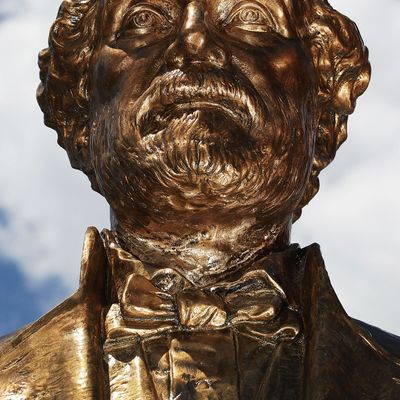
The politically and socially fraught debate around the removal of Confederate memorials showed no signs of slowing down a week after violence at a white-nationalist rally galvanized the movement to take them down.
Since the rally in Charlottesville on August 12 — the purported focus of which was a soon-to-be-removed statue of Robert E. Lee — dozens of monuments around the country have been destroyed or relocated, many in the dead of night to discourage unruly crowds from forming.
In the latest high-profile instance, on Monday morning the University of Texas at Austin took down four statues of figures associated with the Confederacy, including one of Robert E. Lee. In a statement, the university’s president said that the events in Charlottesville “make it clear, now more than ever, that Confederate monuments have become symbols of modern white supremacy and neo-Nazism.”
There are hundreds of such markers around the country, mostly in the South. The vast majority were consecrated long after the Civil War, during spasms of white-nationalist fervor that coincided with the rise of Jim Crow and, later, resistance to the civil-rights movement.
While President Trump defended the marchers in Charlottesville at his bracing press conference on Tuesday, he saved most of his rhetorical fire for those who are, in his words, “changing history” by removing such markers.
“I wonder, is it George Washington next week?” Trump said. “And is it Thomas Jefferson the week after?”
Many commentators noted that, by shifting the terrain of the white-nationalism conversation from neo-Nazis to a “where do you draw the line?” debate, President Trump landed on firmer political ground. Polls have found that a majority of Americans agree with his stance that Confederate memorials should not be removed. In a sign that opinion on the issue is far from uniform, Congress’s two top Democrats were split about whether to call for the removal of Confederate statues from the Capitol.
Some conservatives are in favor of memorial removal, but others echoed Trump in warning of a slippery slope, where the likes of Christopher Columbus might be next on the chopping block. (A Columbus statue was vandalized Monday morning in Baltimore.)
But historians mostly reject that argument, for the simple reason that monuments to figures like Washington venerate flawed-but-indispensable icons of American history, while figures from the Confederacy memorialize people who were actively fighting against the country. “It is obvious that traitors in arms to the nation are not equivalent to those who created it,” University of California, Davis, history professor Gregory Downs told PBS.
Another popular strain of argument is that getting rid of the memorials is an affront to national memory — an erasure of important American history. But many argued that the statues commemorate very selective memories. As historian Eric Foner wrote in the New York Times, the statues “say a lot more about the time they were erected than the historical era they evoke,” and are “an indication of who has the power to choose how history is remembered in public places.” Others wondered about the dearth of monuments to black soldiers around the country.
A third line of thinking maintains that the removed memorials are art, and that removing them amounts to censoring artistic expression.
“You can argue that any sculpture is art in some way, but it’s a loose argument,” Trevor Schoonmaker, chief curator of Duke University’s Nasher Museum of Art, said, as quoted by Aimee Tomasek, chair of Valparaiso University’s art department. The statues, Schoonmaker maintained, “weren’t made with great artistic intent, but with political intent. And intent matters in this case.”
(The artistic value of the statues has been deemed by critics to be close to nil.)
With the national spotlight glaring down, those who favor removing the memorials have momentum on their side, though whether that will remain true once the nation’s focus shifts to the next Trump-induced crisis is another question. In any case, the specific issue of Confederate memorials is a proxy for the larger battle over race and identity that has permeated American culture since the beginning, and which, Trump or no, isn’t going to end anytime soon.
An earlier version of this article mistakenly attributed Trevor Schoonmaker’s comments to Aimee Tomasek.






























